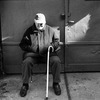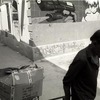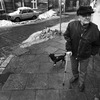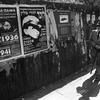General Launches Surprise Project
General Wojciech Jaruzelski, Poland's last communist-era leader, said Monday he wants to work with former foe Lech Walesa to set up a truth commission that would examine the country's past behind the Iron Curtain.
Jaruzelski, who made history for ordering a 1981 military crackdown on Walesa's pro-democracy Solidarity movement, told The Associated Press in an interview that the commission should act as a "lay confessional" for a nation bitterly divided by memories of its communist past.
"Gossip is now raging across Poland," he said. "We need to find a platform that will provide us with objectivity."
The appeal comes amid a growing campaign by opposition right-wing politicians - 16 years after the fall of communism - to expose those who secretly collaborated with the hated communist regime.
As the leader who acted to preserve that system by imposing martial law, 81-year-old Jaruzelski is campaigning to be seen not as a former oppressor but as a patriot who acted to spare Poland a Soviet invasion.
Speaking in his simple office in downtown Warsaw, Jaruzelski wore the trademark tinted glasses that shield eyes damaged by snow blindness in Siberia where he was deported with his wealthy landowning family at age 18 during World War II. He later volunteered for a Soviet-run Polish army and was twice wounded fighting the Germans.
The suffering of Jaruzelski's family - his father died in Siberia - is a microcosm of the pain of Poland, which was invaded by Nazi Germany and Stalin's troops during World War II and then controlled by Moscow through the Cold War. Suggestions he is anything but a patriot provoke a quick and angry reaction.
A trim figure in a dark suit, he lashed out at the most recent attack against him - a threat by right-wing politicians to strip him of his general's rank and pension for behavior they deemed too pro-Moscow during his visit to Russia for the 60th anniversary of the end of World War II.
While there, he received a medal from Russian President Vladimir Putin for his service as a World War II veteran and gave interviews to the Russian media in which he was quoted as recalling the "warmth of the Siberian soil."
Jaruzelski says he was quoted out of context, his voice quivering with anger at accusations that his loyalties were and remain with Moscow rather than with his own people.
"This is such wickedness," he said, his voice rising with emotion. "Such a big problem was made of this, that I am not worthy of the name of a Pole."
The call for him to be stripped of his rank was brought by Lech Kaczynski, the conservative mayor of Warsaw and the man who is leading polls ahead of October presidential elections, along with his brother Jaroslaw, the head of the Law and Justice Party.
"This is very painful. I have grown used to the (attacks) for martial law and the other things," he said, but added that it is intolerable to hear Lech Kaczynski say that "Russia is more my motherland than Poland and his brother calls me a traitor."
"Let them charge me for martial law, for other things, but this ... If someone is considered a traitor of the nation, this is not a physical, but a moral punishment."
Walesa has backed the idea of a truth commission like the one Jaruzelski proposes, but wants it to be formed by the current, government-funded National Remembrance Institute. Jaruzelski, however, prefers for it to be independent, arguing that the institute has failed to behave as a neutral and objective arbiter.
Jaruzelski repeated his long-standing argument that martial law - which led to the roundup of opposition figures, curfews, and military control of society - was the lesser of two evils.
"The greater evil would have been intervention" by Soviet troops, he said.
"That would have been preceded by an extreme destabilization of the country, anarchy, economic catastrophe," he said. "I regret, deplore, apologize for what ... took place."
Jaruzelski was cleared by a left-dominated parliament in the mid 1990s on charges he had violated the constitution by imposing martial law.
He currently faces a second trial for the 1970 shooting deaths of striking shipyard workers in Baltic port cities when he was defense minister. The process began in 2001 but stalled and it was not clear when it would resume.

 Kawaleria Szarza Smaku
Kawaleria Szarza Smaku
 Europejska
Europejska
 Krakow Pinball Museum
Krakow Pinball Museum






